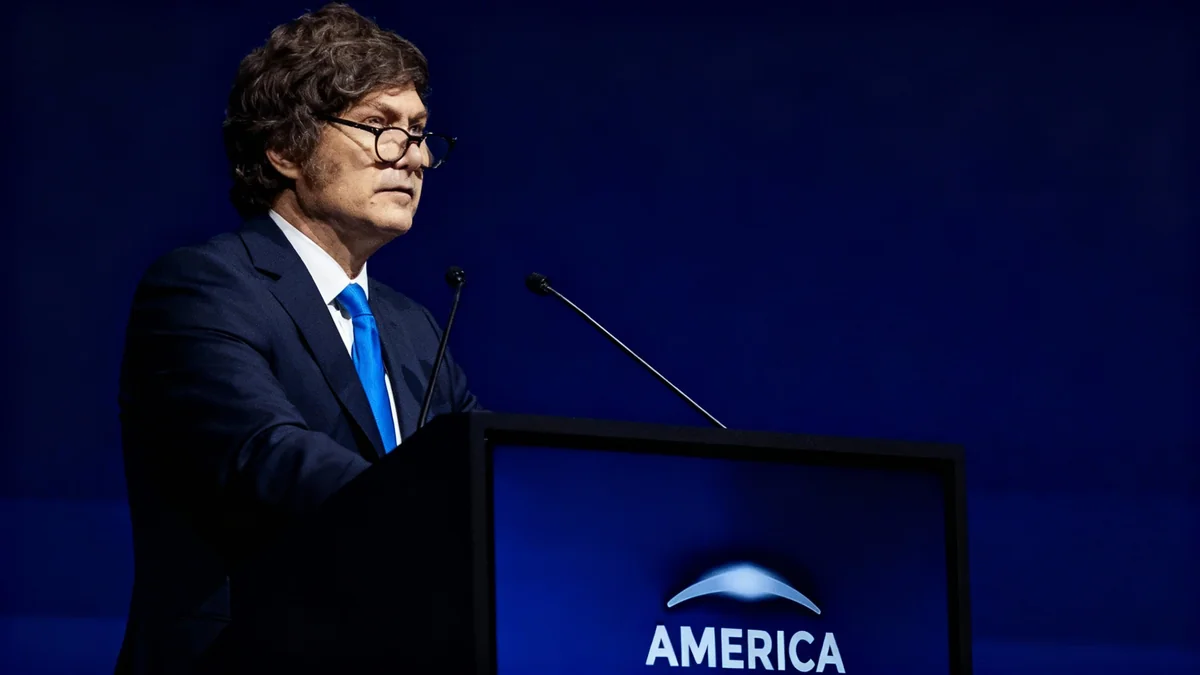The UK government has announced a series of significant investment commitments from major U.S. corporations following Donald Trump's recent state visit. While the government has highlighted a total figure of £150 billion in planned investments, a closer examination reveals a mix of new initiatives, previously planned projects, and ongoing strategic partnerships across key sectors including technology, energy, and finance.
Key Takeaways
- Major U.S. tech companies, including Microsoft and Nvidia, announced multi-billion pound investments in the UK's artificial intelligence infrastructure.
- Private equity firm Blackstone pledged to invest £100 billion over the next decade, though this figure includes debt and is part of a wider European strategy.
- The UK and U.S. agreed to streamline regulations for nuclear reactor designs, aiming to accelerate the development of small modular reactors (SMRs).
- Despite closer relations, the UK steel industry will face a permanent 25% U.S. tariff, a concession from the UK government.
- An anticipated agreement on cryptocurrency regulation between the two nations did not materialize during the visit.
Technology Sector Sees Major Funding Boost
The technology industry was a primary beneficiary of the agreements announced during the visit. Several U.S. tech giants committed substantial capital to bolster the UK's capabilities in artificial intelligence, an area previously identified as lacking sufficient infrastructure.
Artificial Intelligence Infrastructure
Microsoft made a significant pledge to invest $30 billion (£22 billion) in the United Kingdom over the next four years. Half of this amount, approximately $15 billion, is designated for building out AI infrastructure, which includes plans for the country's largest new supercomputer.
Separately, chipmaker Nvidia announced it would invest £500 million into Nscale, a UK-based cloud computing startup. This investment is part of a larger plan to deploy 120,000 of its advanced chips in the UK, a move set to create the largest cluster of AI computing power in Europe.
Strategic Positioning
These investments align with the UK's strategy to position itself as a key link between U.S. technology capital and the European market. A memorandum of understanding signed between the two countries emphasized the UK's commitment to "pro-innovation AI policy frameworks," which some analysts interpret as a signal of a lighter regulatory approach compared to the European Union.
Tony Wang, a tech portfolio manager at T Rowe Price, commented on the UK's appeal. "The UK is increasingly positioning itself as a bridge between US tech capital and European demand," he said. "London is closer in mindset to Washington than Brussels, and that matters as companies commit long-term capital."
In another major deal, U.S. software firm Palantir agreed to invest £1.5 billion in the UK over the next five years. The company also secured a £750 million contract extension with the UK's Ministry of Defence.
Energy and Finance Commitments Detailed
Alongside technology, the nuclear energy and financial sectors also saw new agreements and large-scale pledges. However, these announcements come with important context and are at varying stages of development.
Nuclear Energy Cooperation
The U.S. and UK governments signed an agreement to simplify and accelerate the process for approving new nuclear reactor designs. By reducing regulatory duplication between the two countries, the deal aims to support the development of advanced and small modular reactors (SMRs).
Following this, several companies, including Centrica, X-energy, and Rolls-Royce, announced partnerships to explore SMR projects in the UK. Rolls-Royce also confirmed it has submitted its SMR design for review by U.S. regulators.
Early Stages of Development
While promising for the UK's future energy supply, most of these nuclear projects are in the preliminary phase. They still require billions of pounds in funding and must navigate multiple regulatory hurdles before becoming operational. Many of the current agreements are non-binding memorandums of understanding.
"It is now up to the UK government to focus on delivering this. There are definitely viable pathways where the next steps can be worked out and those deals can become real, deliverable projects."
– Tone Langengen, Tony Blair Institute
Blackstone's £100 Billion Pledge
Private equity firm Blackstone made the largest single financial commitment, announcing plans to invest £100 billion in the UK over the next ten years. The investments will span private equity, real estate, and credit markets.
However, this headline figure includes the use of debt to finance acquisitions, not solely equity investment from the firm. It is also part of a previously announced strategy to deploy $500 billion across Europe over the same period. Blackstone currently holds UK assets valued at approximately £79 billion ($107 billion), including debt.
Challenges Remain in Steel and Digital Assets
Not all sectors experienced positive breakthroughs during the state visit. The UK steel industry faced a setback on trade tariffs, and a hoped-for announcement on digital asset regulation failed to occur.
Permanent Steel Tariffs Confirmed
Hopes for the removal of U.S. tariffs on UK steel were not realized. Instead, the UK government conceded to a permanent 25% levy on steel exports to the United States. While lower than the 50% tariff applied to some other nations, it imposes a significant cost on UK manufacturers.
The tariff affects not only steel producers but also companies like JCB, which use British steel in products exported to the U.S. According to trade data, the U.S. is the UK’s second-largest export market, accounting for 9% of exports by value.
Sam Lowe, a trade expert at Flint Global, noted the outcome was a lesson in diplomacy. "Even if you’re in Trump’s good books it doesn’t mean you get everything you want," he stated.
No Deal on Cryptocurrency Regulation
Executives in the UK's cryptocurrency sector had anticipated an announcement on regulatory cooperation with the U.S. A meeting took place between UK Chancellor Rachel Reeves and U.S. Treasury Secretary Scott Bessent, attended by firms like Coinbase and Ripple.
Discussions were expected to cover stablecoins and closer alignment between the UK's cautious approach and the more pro-industry stance in the U.S. under Trump. However, no formal agreement was announced by the conclusion of the visit. According to one source familiar with the talks, the planned announcement was organized at the last minute and remained at a high level.





